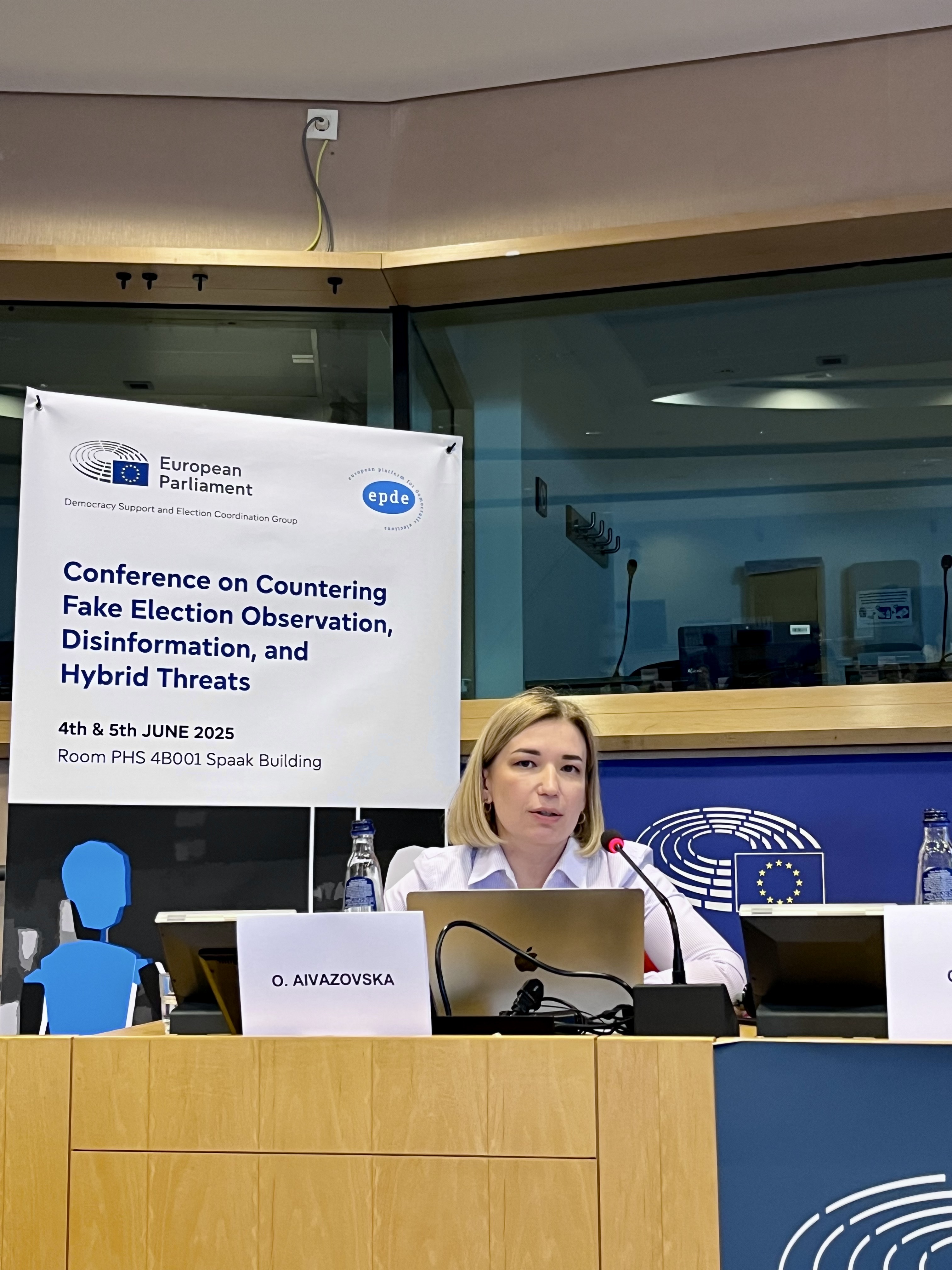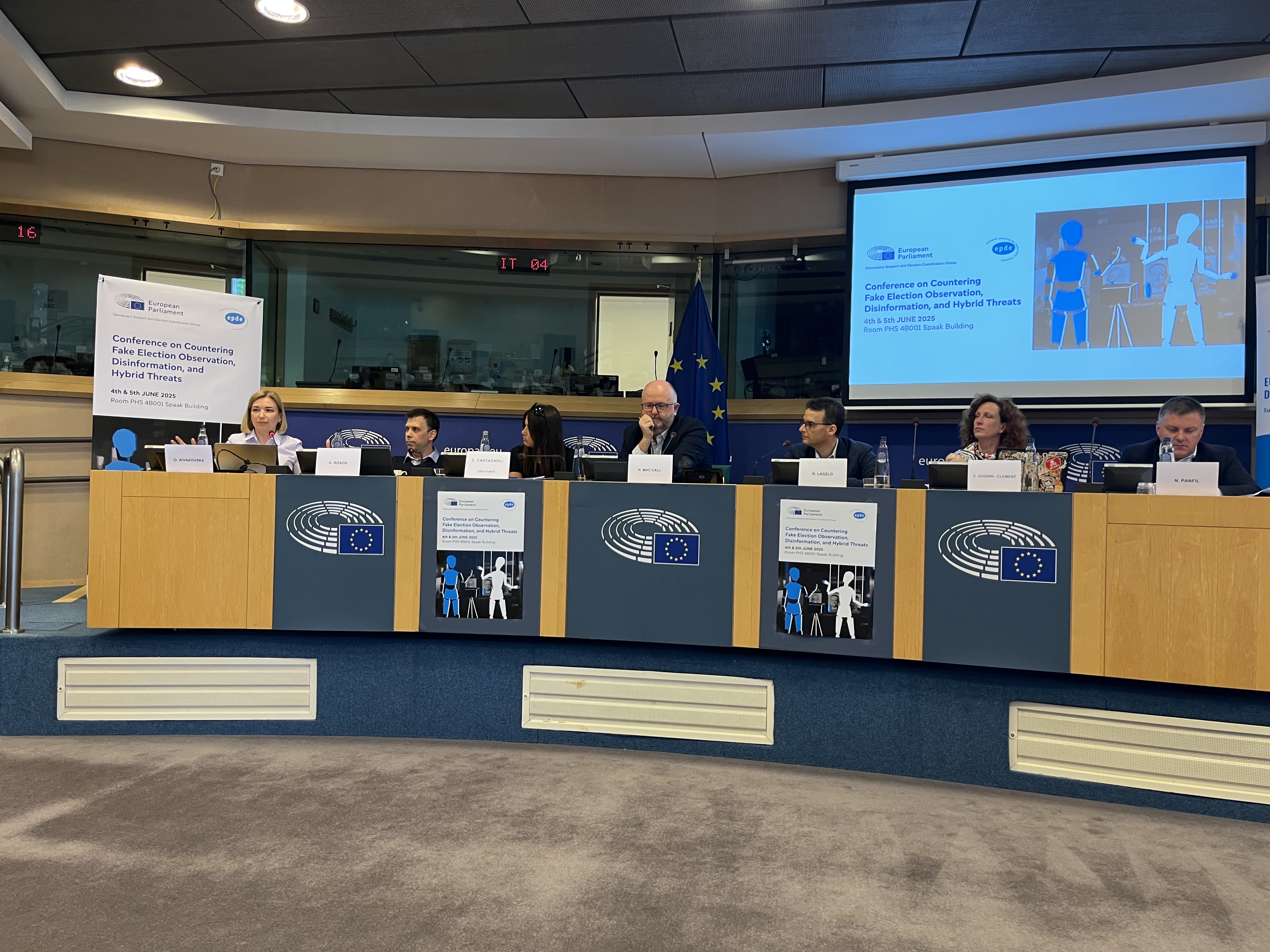On June 4-5 in Brussels, MEPs and election experts discussed ways to counteract politically biased (fake) election observation and related disinformation campaigns. The Civil Network OPORA, as a leading Ukrainian organization of independent civic election observation, was represented at the conference by its Chair of the Board, Olga Aivazovska.
The panel discussions focused on the following topics: institutional vulnerabilities exploited by authoritarian regimes; civil society tools to expose politically biased observer networks, and specific actions of national government institutions and election management structures to strengthen resilience to disinformation and hybrid threats.
The event was co-organized by the Parliamentary Democracy and Election Coordination Group (DEG) and the European Platform for Democratic Elections (EPDE), for which we are sincerely grateful to our partners. Below are the theses from Olga Aivazovska's remarks during the panel discussion.
“There are no hybrid threats to elections, and no hybrid wars. They are more real than ever and are quite measurable in their consequences: loss of political independence, territorial integrity, sovereignty, aggressive policy towards neighbours, and joining the Alliance of Evil, even if you formally declare your belonging to the free world.
We are living in a time when international law is undergoing its tests, and elections are easily hacked without a proper system of protection. Russia could have avoided committing the crime of aggression against Ukraine using its armed forces if it had been able to put its candidate in charge of Ukraine. The latter is much cheaper.
The Russians invaded Ukraine with large columns of tanks and uniformed troops in February 2022 because their analytics and the billions of dollars they had invested in Ukrainian political life and media guaranteed them an easy victory, no public resistance, and a calm perception of the occupation by Ukrainians. But it didn't work, because my compatriots are used to having a choice. A real one. However, they have not yet lost, because they learn from their mistakes very quickly and work to split societies, to lose the will to win, and to use information and psychological special operations aimed at emotions that prevent them from acting rationally in times of crisis.
Fear in societies under threat contributes to the rise to power through elections of extreme political groups and populists. Due to the globalisation of politics and economics, such trends cover entire regions and are not limited to the borders of one country.

Elections are still perceived as analogue television, even though we have long lived in the digital age, which is unique in its individual approach to each voter's fears, pains, and hopes. Social media and messengers have provided direct access to the brains of voters, honest politicians, and enemies alike. Algorithms and artificial intelligence in social media drive everyone into a state of acceptance of their reality. This is an element of political engineering and polarisation that helps to break down fair competition in elections.
"For me, the basis of fair and free elections is genuine political competition and access to the truth for voters. If there is no chance to form a political will freely, then it was not an election at all. We are talking about total disinformation, incitement of ideological splits, degradation, and discrediting of democratic standards and values.”
Read also: Roadmap for Ensuring Organization of Postwar Elections in Ukraine
